Medications play a vital role in managing various health conditions, alleviating symptoms, and improving overall well-being. However, it’s important to be aware that even commonly used medications can have side effects – good, bad, and ugly. In this article, we will explore some popular medications and their potential side effects, including positive effects, negative effects, rare effects, and even some bizarre ones.
There is not a single medication on the market that doesn’t come with side effects. While we tend to think of side effects negatively, the reality is that they can be both positive or negative. In medicine, the whole idea is to weigh the pros and cons of treatment using this medication versus not treating or using something else. That is how prescription decisions and treatment plans are made. You, as the patient, must monitor and be aware of potential side effects so that you can have good conversations with your medical provider and take an active role in your personal health care.
These are 41 different medications that have various side effects you may not have been aware of. It’s important to note that not all individuals will experience side effects, and the occurrence of side effects can vary depending on the individual and their underlying health conditions. Always consult with a healthcare professional or pharmacist about potential side effects before taking any medication, and adhere to the prescribed dosage for optimal safety
1. Ibuprofen

Used as a nonsteroidal anti-inflammatory drug (NSAID), ibuprofen helps relieve pain, reduce inflammation, and lower fever. While it is generally safe when used as directed, potential side effects include stomach upset, heartburn, dizziness, and allergic reactions. Long-term use or high doses may lead to stomach ulcers, kidney problems, and increased risk of heart attacks and strokes. (1)
Read More: This Common Medication Could Lead to Irreversible Health Conditions
2. Aspirin

Famous for its ability to alleviate pain, reduce inflammation, and prevent blood clotting, aspirin is commonly used as a pain reliever and blood thinner. Known side effects include stomach upset, heartburn, allergic reactions, and increased risk of bleeding disorders. Aspirin should be used with caution in patients with certain medical conditions, such as asthma or stomach ulcers. (2)
3. Penicillin
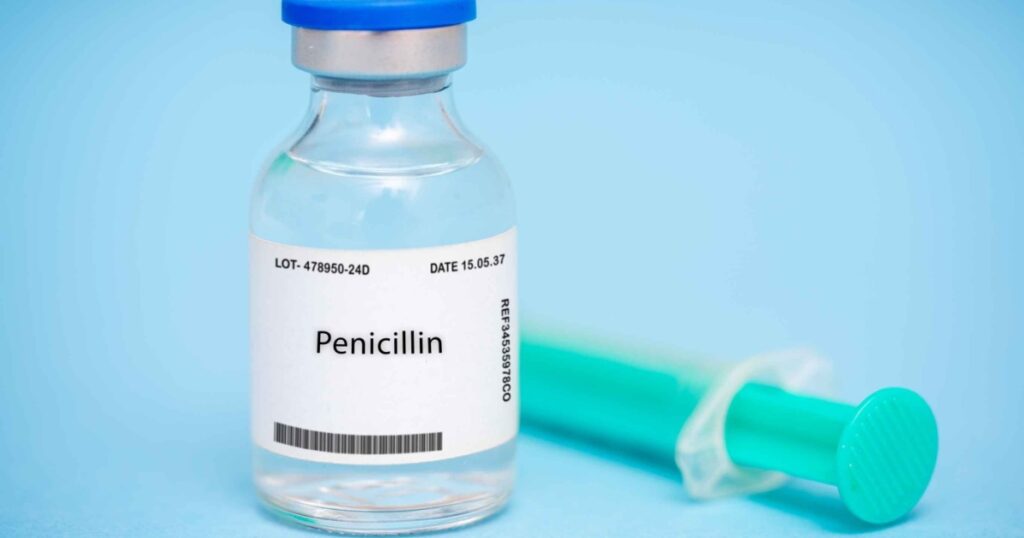
Penicillin is an antibiotic used to treat bacterial infections. Potential side effects of penicillin include allergic reactions, ranging from mild rashes to severe anaphylaxis, which can be life-threatening. Other less common side effects include diarrhea, nausea, and fungal infections. (3)
4. Naproxen
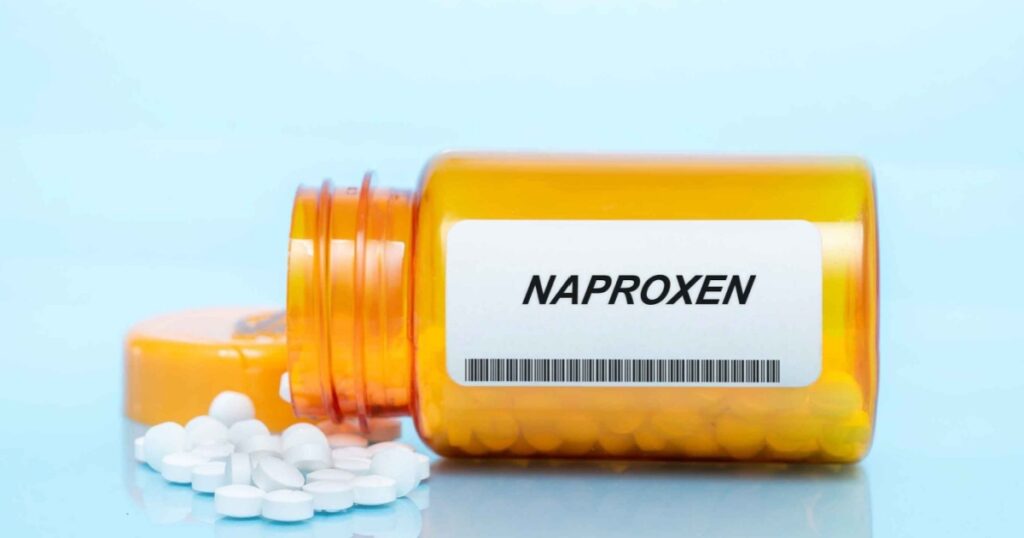
Similar to ibuprofen, naproxen belongs to the NSAID class and is commonly used for pain relief, fever reduction, and anti-inflammatory purposes. Side effects may include stomach upset, heartburn, drowsiness, dizziness, and in rare cases, allergic reactions and kidney problems. (4)
5. Eye drops

Eye drops are medications used for treating various eye conditions, such as dry eyes, glaucoma, or eye infections. While side effects are generally minimal, they may include temporary stinging or burning sensation, blurry vision, and allergic reactions. (5)
6. Anesthesia

Anesthesia is administered to patients during surgical procedures to induce loss of consciousness, pain relief, muscle relaxation, and amnesia. Although rare, potential side effects can include allergic reactions, nerve damage, headache, nausea, and in extremely rare cases, malignant hyperthermia. (6)
7. Ofloxacin
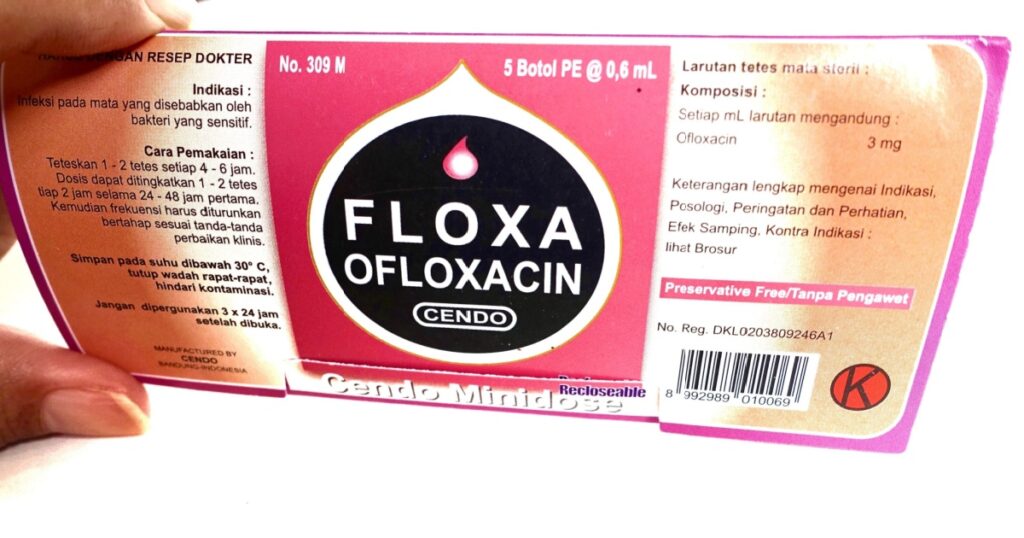
Ofloxacin is an antibiotic used to treat certain bacterial infections, including respiratory tract infections and urinary tract infections. Side effects may include nausea, diarrhea, dizziness, headache, and tendon rupture, which is a rare but severe complication. (7)
Read More: Is There a Link Between Medication Use During Infancy and Allergies in Early Childhood?
8. Dextromethorphan
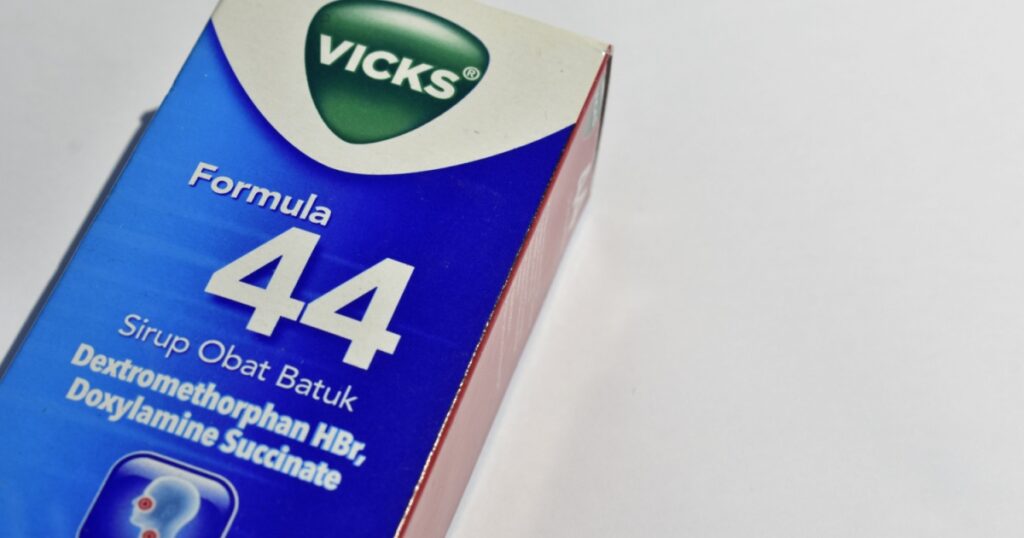
Dextromethorphan is an ingredient found in cough suppressants to alleviate cough symptoms. Potential side effects may include dizziness, drowsiness, stomach upset, and, in rare cases, hallucinations or serotonin syndrome when combined with certain medications. (9)
9. Prednisone
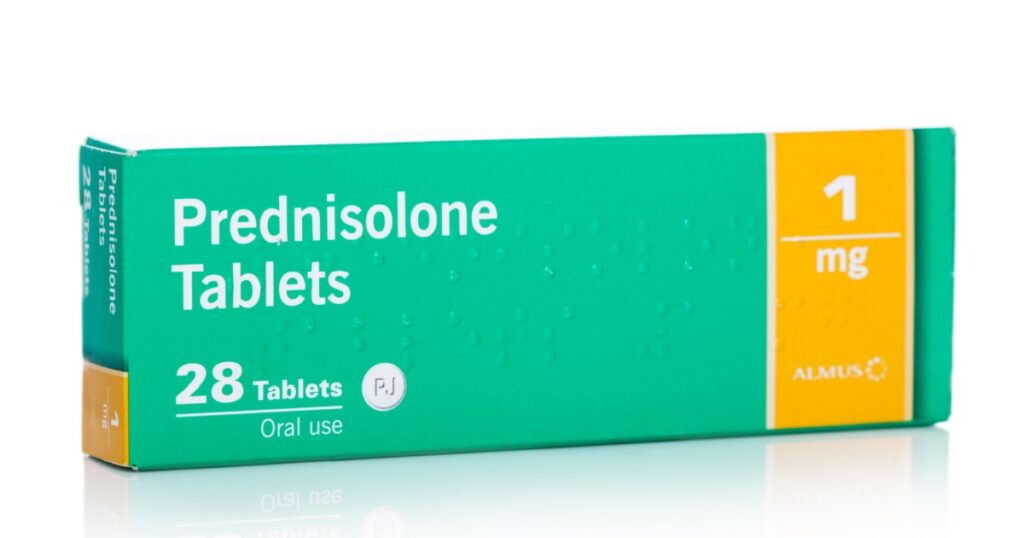
As a corticosteroid, prednisone is prescribed to reduce inflammation and suppress the immune system in various conditions, including allergies, asthma, or autoimmune disorders. Side effects can range from weight gain, increased appetite, mood changes, and fluid retention to bone thinning, increased blood sugar levels, and susceptibility to infections. (10)
10. Testosterone

Testosterone is a hormone prescribed to treat low testosterone levels in males. Side effects may include acne, increased facial hair growth, mood changes, fluid retention, and, in rare cases, an increased risk of heart problems or prostate enlargement. (11)
11. Prozac
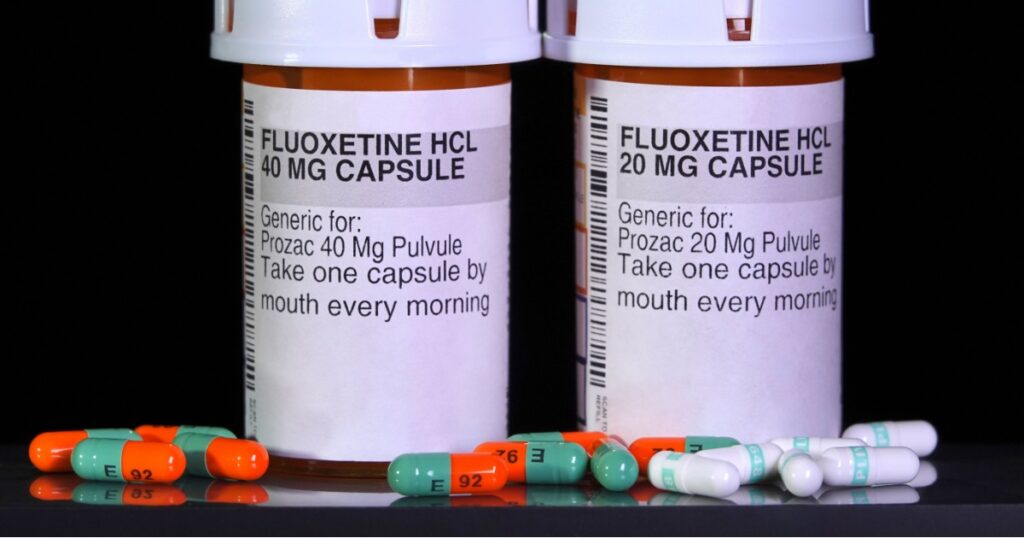
Prozac, also known as fluoxetine, is an antidepressant used to treat depression, anxiety disorders, and other mental health conditions. Common side effects include nausea, headache, nervousness, and sexual dysfunction. Rare side effects may include increased risk of suicidal thoughts or behaviors, serotonin syndrome, or allergic reactions. (12)
12. Sleeping Pills

Sleeping pills are medications prescribed to help treat insomnia and promote sleep. Side effects may include daytime drowsiness, headache, dizziness, and, in rare cases, sleepwalking or sleep-driving. (13)
Read More: Common Blood Pressure Medication May Increase the Risk of Skin Cancer
13. Zyrtec
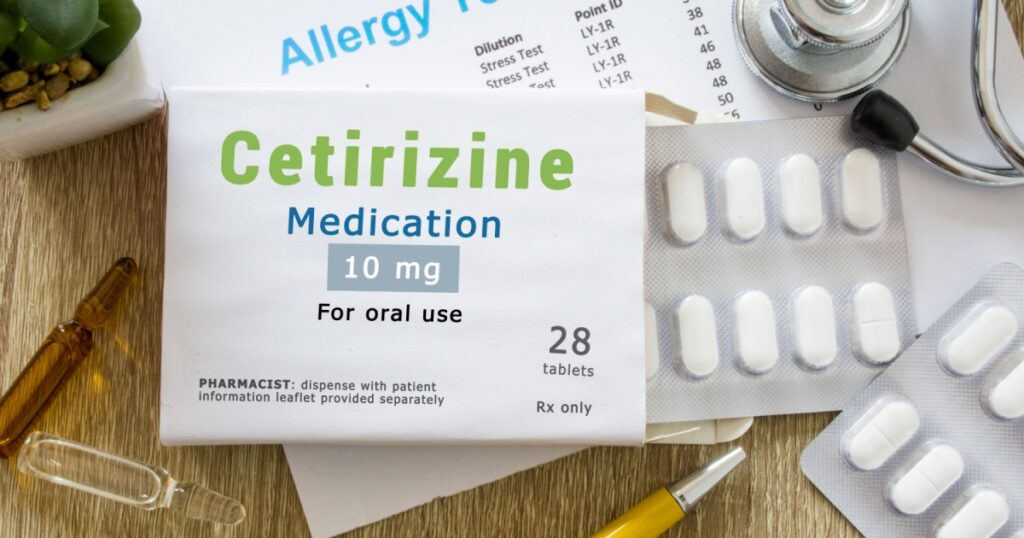
Zyrtec, or cetirizine, is an antihistamine used to relieve allergy symptoms such as sneezing, itching, and runny nose. Common side effects include drowsiness, dry mouth, and headache. Rarely, side effects can include fast or irregular heartbeat, confusion, or severe allergic reactions. (14)
14. Omeprazole
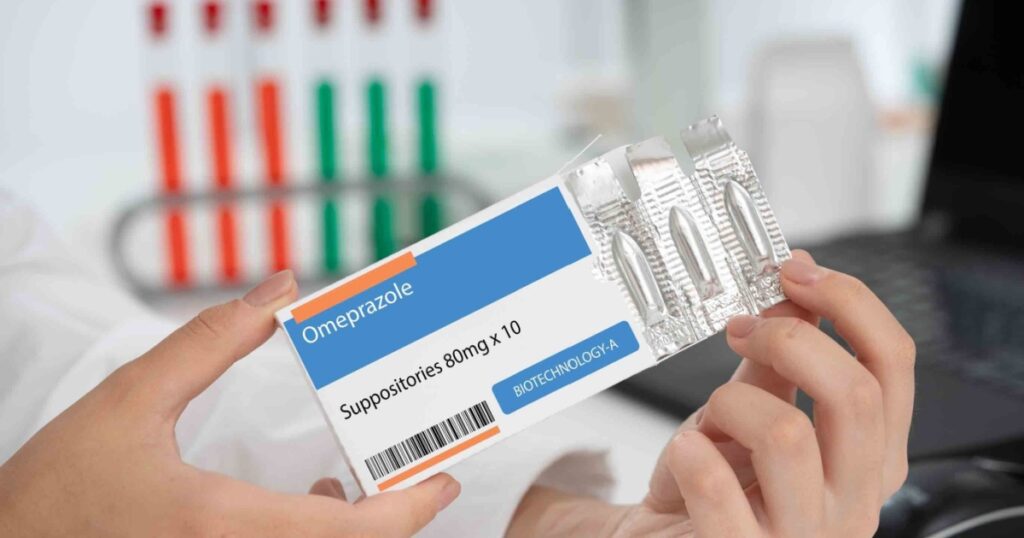
Omeprazole belongs to a class of medications known as proton pump inhibitors (PPIs) and is used to reduce stomach acid production. Common side effects include headache, diarrhea, stomach pain, and nausea. Rare side effects can include bone fractures, vitamin B12 deficiency, or increased risk of certain infections. (15)
15. Proscar

Proscar, or finasteride, is prescribed to treat enlarged prostate or male pattern hair loss. While side effects are generally rare, they may include decreased sexual desire or performance, breast enlargement, or rare cases of allergic reactions. (16)
16. Viagra
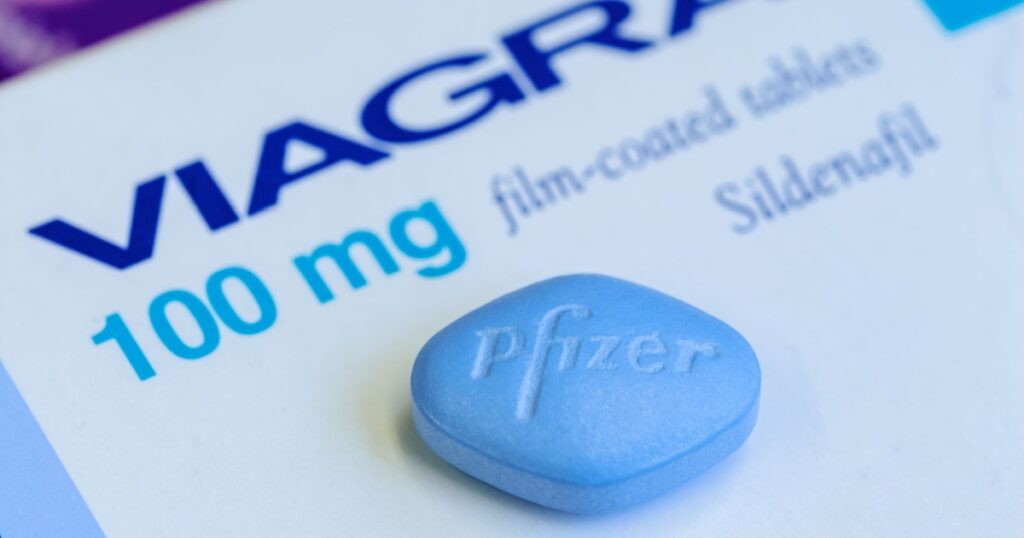
Viagra, or sildenafil, is a medication used to treat erectile dysfunction. Common side effects include headache, flushing, upset stomach, and blurred vision. Rare side effects can include prolonged erections, sudden hearing loss, or allergic reactions. (17)
17. Baclofen
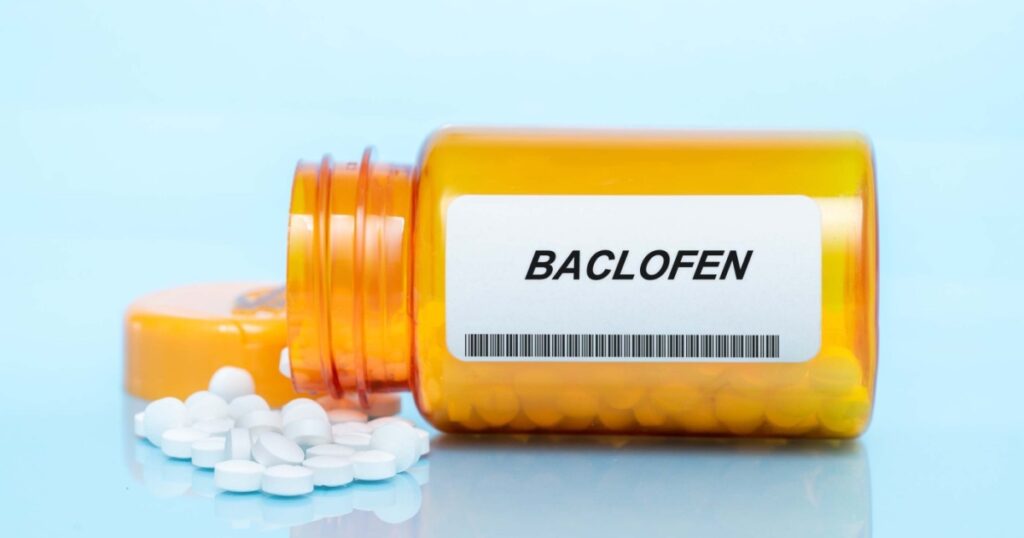
Baclofen is a muscle relaxant used to treat muscle spasms and stiffness. Side effects may include drowsiness, dizziness, confusion, nausea, and muscle weakness. Rare side effects can include hallucinations or seizures. (18)
18. Oral Contraceptives

Oral contraceptives, also known as birth control pills, are used to prevent pregnancy. Side effects may include nausea, breast tenderness, weight gain, and mood changes. Rare side effects can include blood clots, increased risk of stroke, or an increased risk of certain types of cancers. (19)
Read More: 6 Types of Medications That Can Potentially Harm Your Kidneys
19. Tamiflu
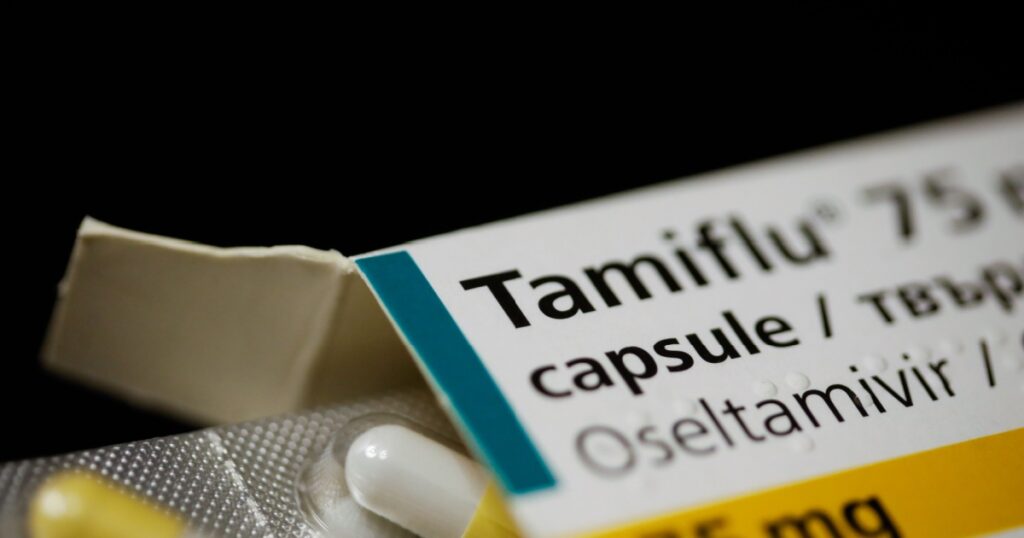
Tamiflu, or oseltamivir, is an antiviral medication used to treat or prevent influenza (flu) infections. Common side effects include nausea, vomiting, headache, and dizziness. Rare side effects can include delirium or self-injury. (20)
20. Nexavar

Nexavar, or sorafenib, is a medication used to treat certain types of cancers. Side effects may include diarrhea, nausea, loss of appetite, and fatigue. Rare side effects can include high blood pressure, heart problems, or severe skin reactions. (21)
21. Azithromycin
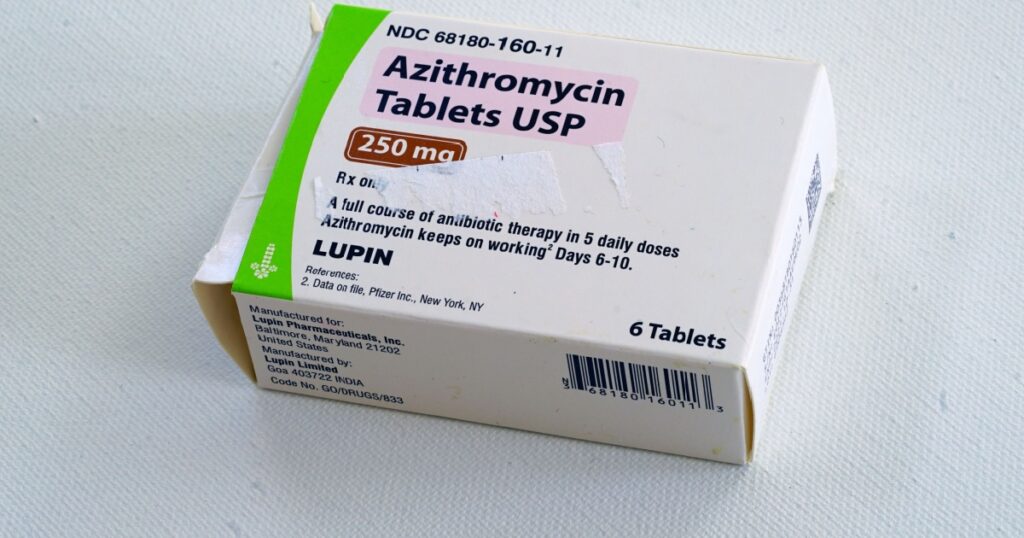
Azithromycin is an antibiotic used to treat bacterial infections. Common side effects include diarrhea, nausea, and stomach pain. Rare side effects may involve liver problems, abnormal heart rhythm, or allergic reactions. (22)
22. Metoclopramide

Metoclopramide is prescribed to treat gastrointestinal conditions such as acid reflux or gastroparesis. Side effects can include drowsiness, restlessness, muscle spasms, and, in rare cases, movement disorders or involuntary muscle movements. (23)
23. Abilify
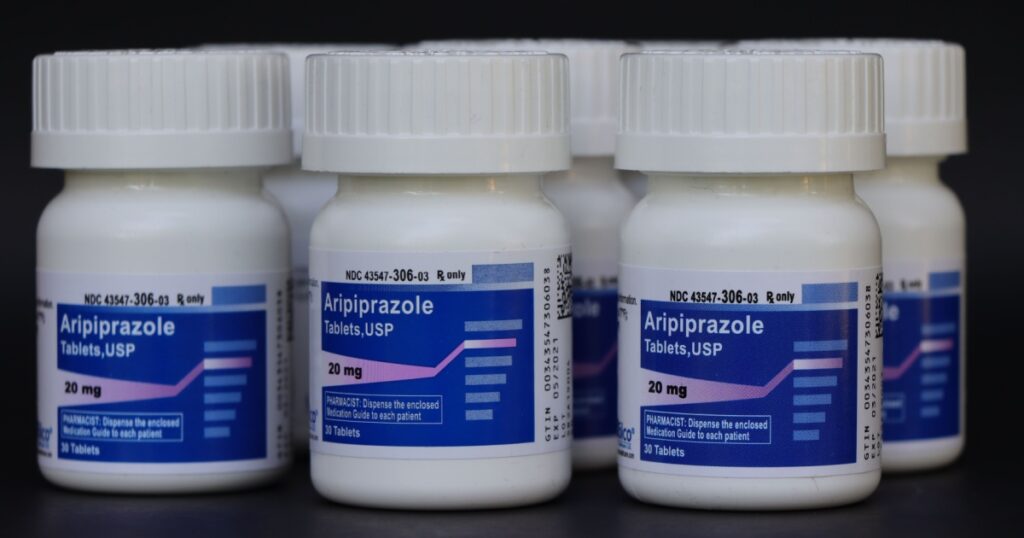
Abilify, or aripiprazole, is an antipsychotic medication used to treat schizophrenia, bipolar disorder, and depression. Common side effects include drowsiness, dizziness, weight gain, and constipation. Rare side effects can include neuroleptic malignant syndrome or uncontrollable urges. (24)
24. Singulair

Singulair, or montelukast, is a medication used to manage asthma and allergies. Side effects may include headache, stomach pain, tiredness, and behavioral changes. Rare side effects can include hallucinations or suicidal thoughts. (25)
25. Ritalin
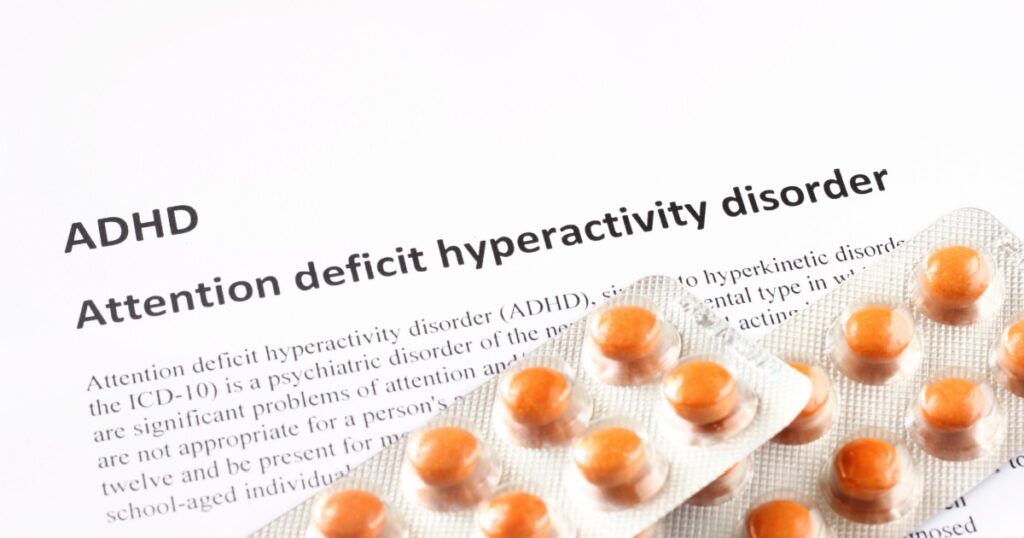
Ritalin, or methylphenidate, is a stimulant medication prescribed to treat attention-deficit hyperactivity disorder (ADHD). Side effects may include decreased appetite, trouble sleeping, and increased heart rate. Rare side effects can include agitation, psychotic symptoms, or heart problems. (26)
Read More: 13 Medication and Supplement Combinations That Should Avoided
26. Flagyl
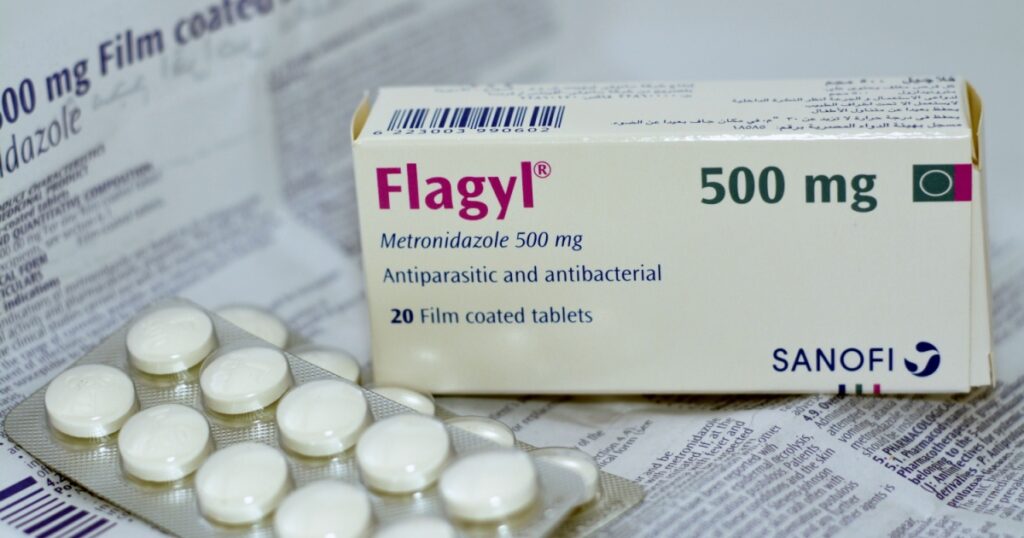
Flagyl, or metronidazole, is an antibiotic prescribed to treat various infections. Common side effects include nausea, metallic taste, and stomach upset. Rare side effects can include nerve damage, confusion, or a disulfiram-like reaction when consuming alcohol. (27)
27. Dyrenium
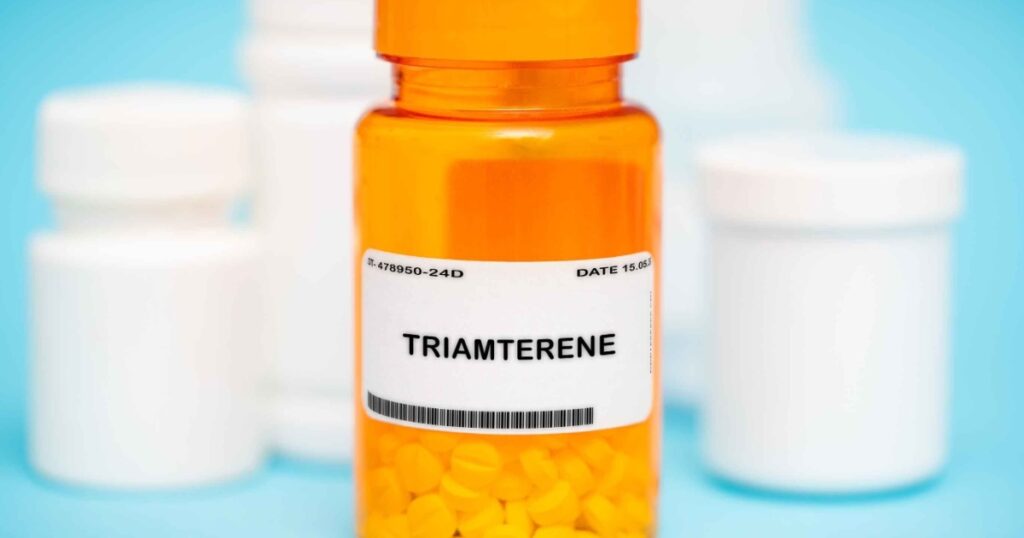
Dyrenium, or triamterene, is a diuretic used to increase urine production and reduce fluid retention. Side effects may include drowsiness, dizziness, and increased sensitivity to sunlight. Rare side effects can involve electrolyte imbalances or kidney problems. (28)
28. Xeloda
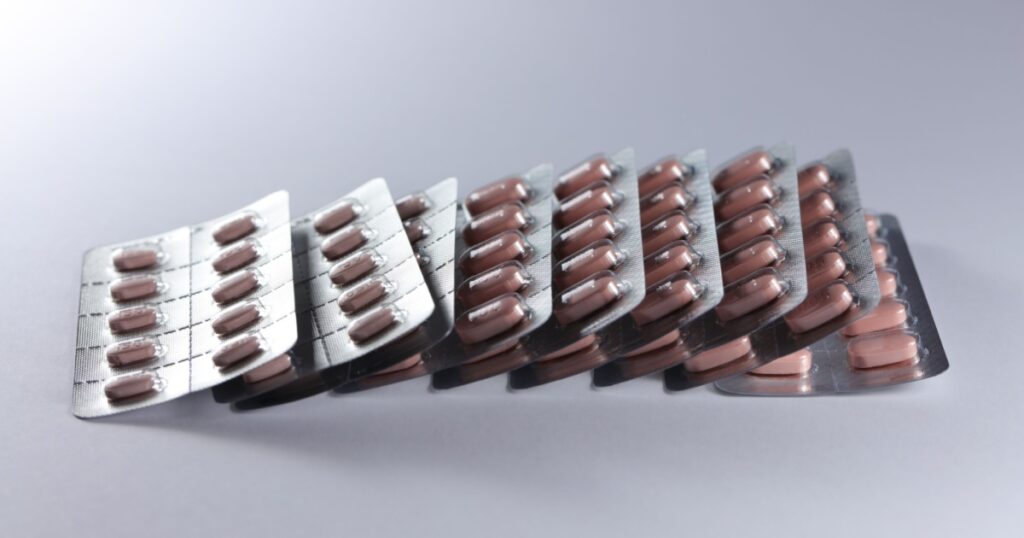
Xeloda, or capecitabine, is a chemotherapy medication used to treat certain cancers. Side effects may include nausea, diarrhea, fatigue, and hand-foot syndrome, which causes redness, swelling, and peeling of the palms and soles. Rare side effects can include severe skin reactions or heart problems. (29)
29. Ambien
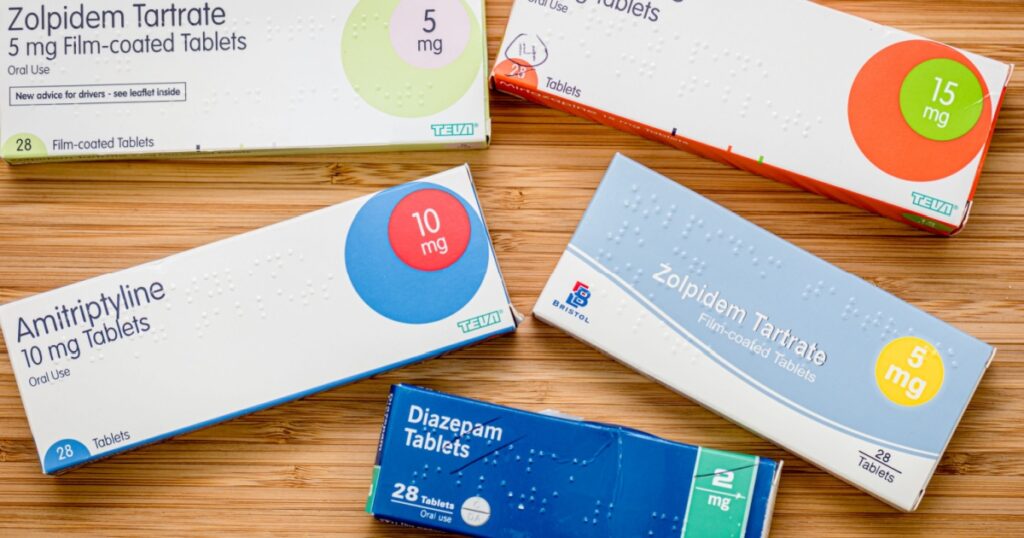
Ambien, or zolpidem, is a sedative-hypnotic medication used to treat insomnia. Common side effects include drowsiness, dizziness, and daytime sleepiness. Rare side effects can include sleepwalking or complex sleep behaviors. (30)
30. Mirapex
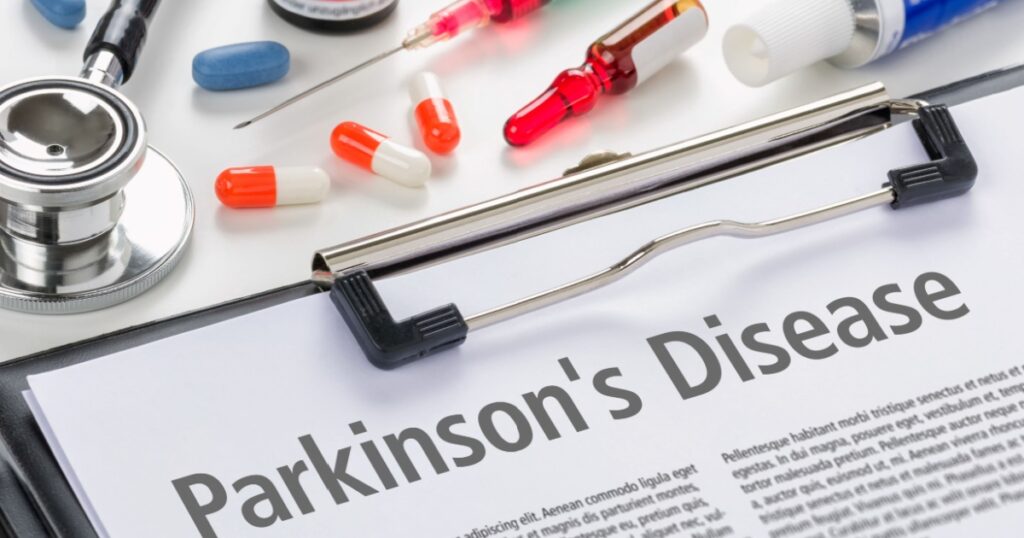
Mirapex, or pramipexole, is prescribed to treat Parkinson’s disease and restless leg syndrome. Side effects may include drowsiness, dizziness, and hallucinations. Rare side effects can include compulsive behaviors or sudden onset of sleep. (31)
31. Vasotec
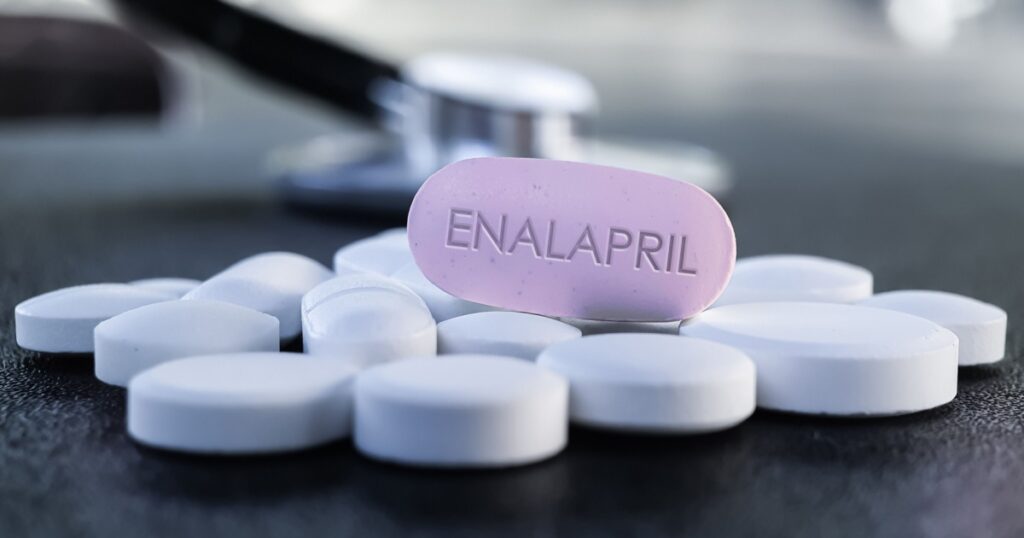
Vasotec, or enalapril, is an angiotensin-converting enzyme (ACE) inhibitor used to treat high blood pressure and heart failure. Side effects may include dizziness, cough, and low blood pressure. Rare side effects can involve kidney problems or allergic reactions. (32)
32. Allegra

Allegra, or fexofenadine, is an antihistamine used to relieve allergy symptoms. Common side effects include headache, drowsiness, and dry mouth. Rare side effects may include palpitations or severe allergic reactions. (33)
Read More: 5 Easy Ways to Help Calm Anxiety Without Medications
33. Chantix
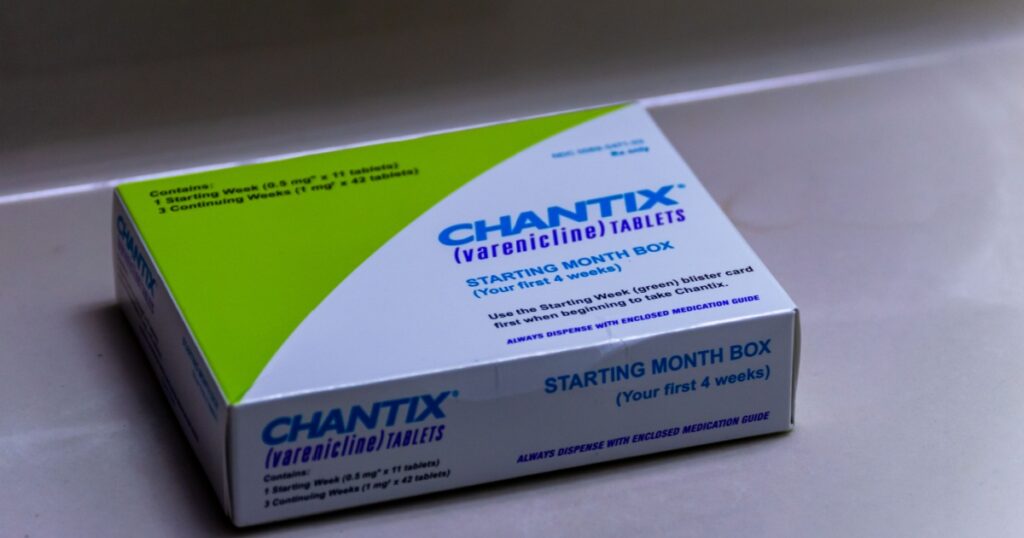
Chantix, or varenicline, is a medication used to help quit smoking. Common side effects include nausea, headache, and abnormal dreams. Rare side effects can include mood changes, aggression, or suicidal thoughts. (34)
34. Lariam
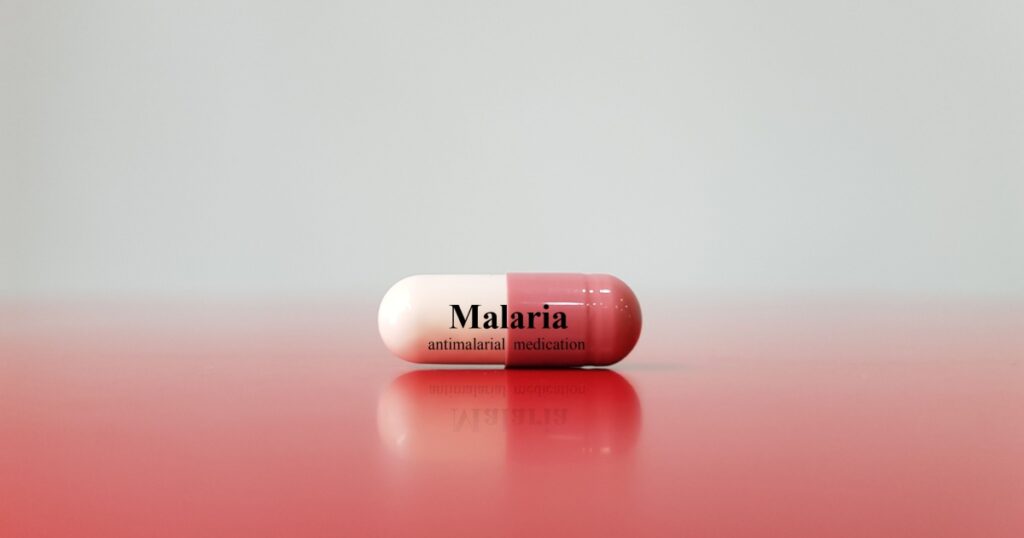
Lariam, or mefloquine, is an antimalarial medication. Side effects may include nausea, diarrhea, and dizziness. Rare side effects can include severe psychiatric reactions or dizziness lasting for months. (35)
35. Thalidomide

Thalidomide is a medication used to treat multiple myeloma and certain skin conditions. Side effects may include drowsiness, constipation, and dizziness. Rare side effects can include severe birth defects or blood clotting disorders. (36)
36. Xenical
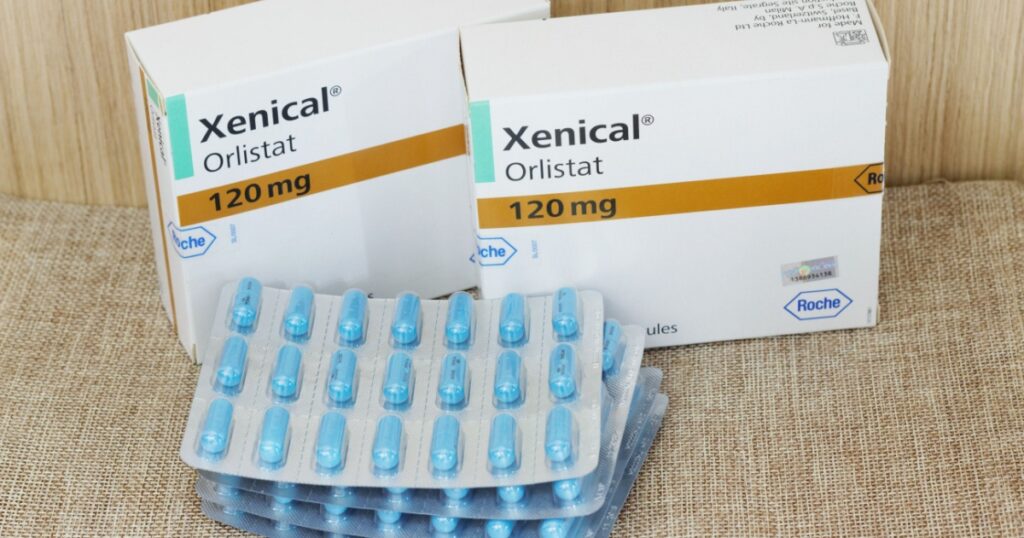
Xenical, or orlistat, is a medication used for weight loss by blocking dietary fat absorption. Side effects may include oily stools, increased bowel movements, and abdominal pain. Rare side effects can involve liver problems or severe allergic reactions. (37)
37. Zoloft
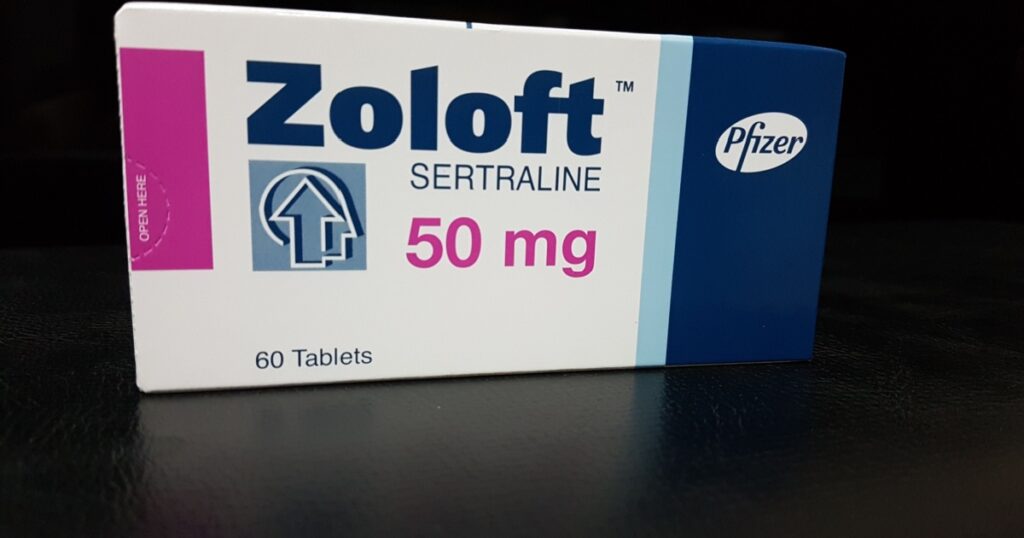
Zoloft, or sertraline, is an antidepressant used to treat depression, anxiety disorders, and other mental health conditions. Common side effects include nausea, diarrhea, and sexual dysfunction. Rare side effects can include increased risk of suicidal thoughts or behaviors, serotonin syndrome, or allergic reactions. (39)
38. Zyprexa
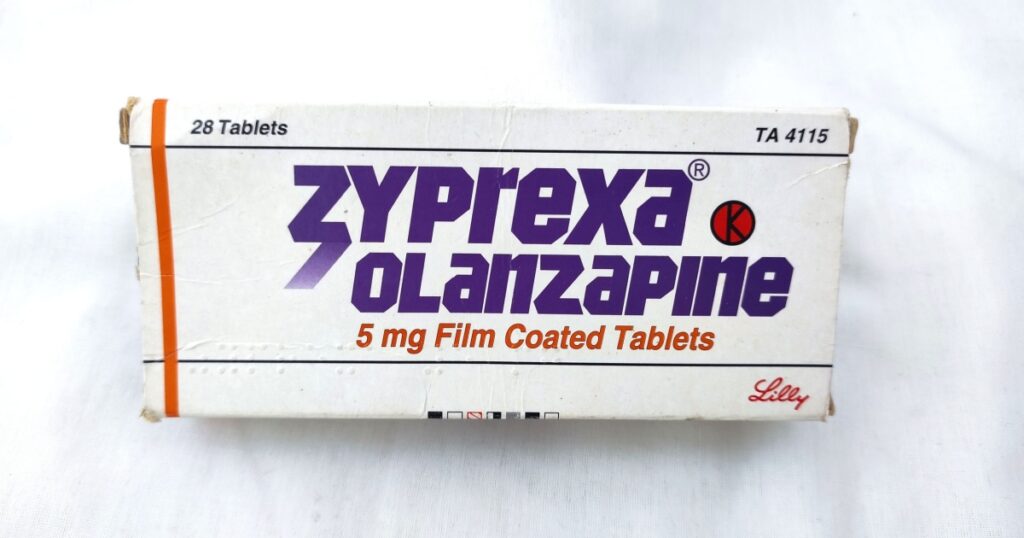
Zyprexa, or olanzapine, is an antipsychotic medication used to treat schizophrenia and bipolar disorder. Common side effects include weight gain, drowsiness, and increased appetite. Rare side effects can include diabetes, neuroleptic malignant syndrome, or movement disorders. (40)
39. Ciprofloxacin
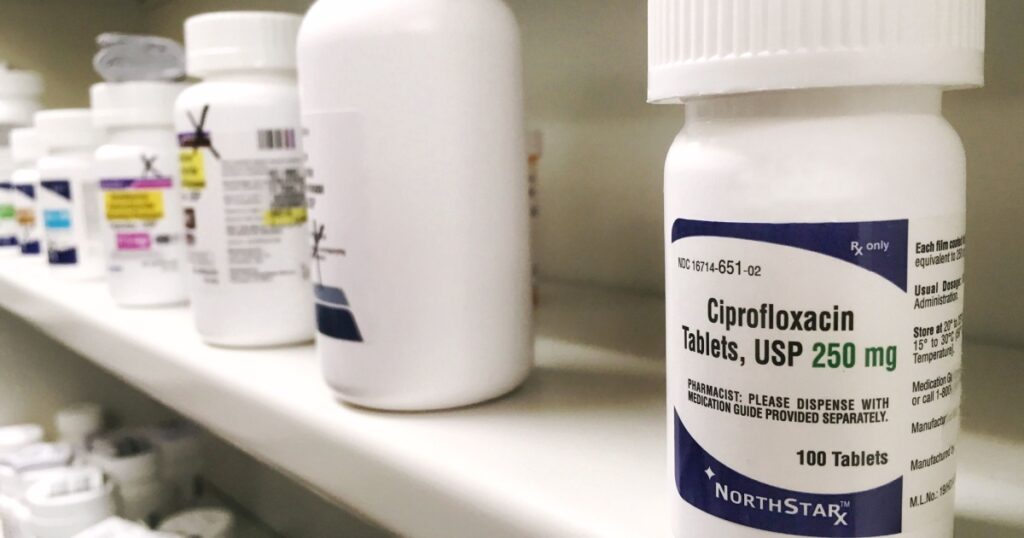
Ciprofloxacin is an antibiotic used to treat various bacterial infections. Common side effects may include nausea, diarrhea, and stomach upset. Rare side effects can involve tendon rupture, nerve damage, or allergic reactions. (41)
Read More: Don’t Ever Use Turmeric If You’re On Any of the Following Medications
Sources
- “Ibuprofen.” ADF. November 23, 2023
- “Aspirin (Oral Route).” Mayo Clinic
- “Penicillin.” NCBI.Derek W. Yip and Valerie Gerriets. May 19, 2022.
- “Naproxen.” Medline Plus
- “A Single Drop in the Eye – Effects on the Whole Body?” NCBI. Anu Vaajanen and Heikki Vapaatalo. October 31, 2017
- “General anesthesia.” Mayo Clinic
- “Ofloxacin (Oral Route).” Mayo Clinic
- “Flu Vaccine Safety Information.” CDC
- “Dextromethorphan Toxicity.” NCBI. Jonathan D. Journey, Suneil Agrawal and Evan Stern. June 26, 2023.
- “Side effects of prednisolone tablets and liquid.” NHS
- “Is testosterone therapy safe? Take a breath before you take the plunge.” Harvard. August 29, 2020
- “Side effects of fluoxetine.” NHS
- “Side Effects of Sleep Medication.” Sleep Foundation. Danielle Pacheco and Dr. Lulu Guo. November 8, 2023
- “Zyrtec.” Drugs
- “About omeprazole.” NHS
- “Finasteride.” Medline Plus
- “Side effects of sildenafil.” NHS
- “Baclofen.” Drugs
- “Oral Contraceptive Pills.” NCBI. Danielle B. Cooper, Preeti Patel and Heba Mahdy. November 24, 2022.
- “Oseltamivir Capsules.” Cleveland clinic
- “Sorafenib Oral Tablet.” Cleveland Clinic
- “Side effects of azithromycin.” NHS
- “Side effects of metoclopramide.” NHS
- “Aripiprazole (Oral Route).” Mayo Clinic
- “Montelukast Tablets.” Cleveland Clinic
- “Methylphenidate.” Medline Plus
- “Flagyl.” Drugs
- “DYRENIUM.” RX List
- “Capecitabine (Xeloda).” Cancer Research UK
- “Ambien Side Effects: Short-Term & Adverse Effects of Ambien.” American Addiction Centers. Nitara Osbourne. June 29, 2023.
- “Pramipexole (Oral Route).” Mayo Clinic
- “VASOTEC.” RX List
- “Fexofenadine Capsules or Tablets.” Cleveland Clinic
- “Varenicline Tablets.” Cleveland Clinic
- “Mefloquine (Lariam®).” Public Health
- “Management of Thalidomide Toxicity.” NCBI. Irene M. Ghobrial, et al. September- October 2003.
- “Orlistat (Oral Route).” Mayo Clinic
- “Side effects of sertraline.” NHS
- “Olanzapine (Oral Route).” Mayo Clinic
- “Ciprofloxacin.” Medline Plus
Disclaimer: This information is not intended to be a substitute for professional medical advice, diagnosis or treatment and is for information only. Always seek the advice of your physician or another qualified health provider with any questions about your medical condition and/or current medication. Do not disregard professional medical advice or delay seeking advice or treatment because of something you have read here.

